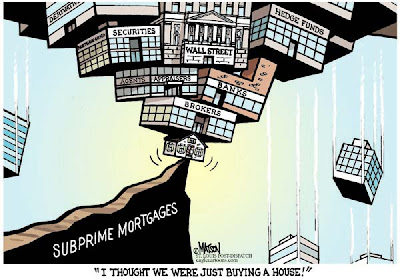Three of the world's biggest oil exporters,
For the majority of Americans who do not travel abroad, the only visible effect so far of the dollar's steep fall has been higher fuel prices at the pump. The Chinese imports that fill the big-box stores still cost the same, only because the Chinese yuan is still pegged to the American dollar. But that may be about to change, along with many other things.
The main reason for the collapse of the U.S. dollar is President George W. Bush's attempt to fight expensive foreign wars while cutting taxes at home. "Ronald Reagan proved that deficits don't matter," as Vice President Dick Cheney told then-Treasury Secretary Paul O'Neill.
But they do matter to foreigners. As the U.S. dollar fell in value, the price of oil (which is usually calculated in dollars) rose to compensate for it, but there was no comparable adjustment for foreign central banks that had huge amounts of U.S. dollars in their reserves.
Many countries are replacing part of their dollar reserves with a basket of other currencies, and those who have pegged their currency to the dollar are starting to cut loose from it:
[Excerpt of article by Gwynne Dyer, Salt

